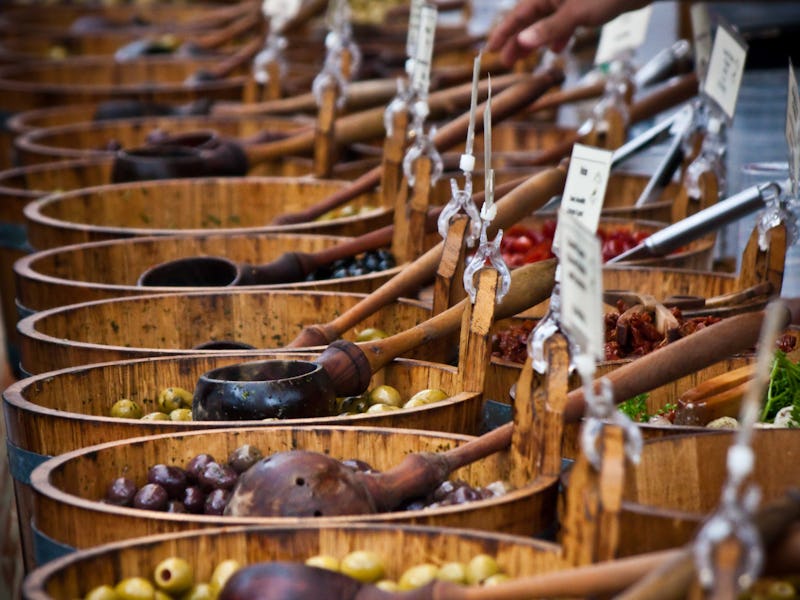The Mediterranean Diet Only Works for Rich People, Study Says
Typical.

If you eat mostly fruits, vegetables, grains, carbs, and non-meat proteins, plus a moderate amount of seafood and dairy products, you’re following the so-called “Mediterranean diet” based on the food traditionally eaten by people in the Mediterranean region, and you have a reduced risk of heart disease. But there’s a major catch, according to a report on the ongoing “Moli-sani Study” published Monday in the International Journal of Epidemiology: The health benefits were more often experienced by wealthy eaters, because high-quality food in the diet doesn’t come cheaply.
A team of Italian researchers from the Mediterranean Neurological Institute (I.R.C.C.S. Neuromed) have been working on the Moli-sani Study since 2005, administering questionnaires and performing health tests on more than 18,000 men and women from southern Italy. In this latest report, they explain how the socioeconomic status of participants has affected results.
Within the bracket of participants who best adhered to the Mediterranean diet — which is “measured by a score comprising fruits and nuts, vegetables, legumes, cereals, fish, fats, meat, dairy products and alcohol intake” — there was still a wide spectrum of results; in other words, participants who ate roughly the same amount of the appropriate foods did not exhibit the same health benefits. Wealthier and better-educated participants experienced a more reduced cardiovascular risk than others.
“Quality of foods may be as important for health as quantity and frequency of intake,” explained Licia Iacoviello, head of the Laboratory of Nutritional and Molecular Epidemiology at the institute, in a press release.
Sardines, tehina sauce, pita, a cucumber and tomato salad, olives, and pickles: classic elements of the "Mediterranean diet."
The team found that the participants with a higher income and educational level ate a wider variety of fruits and vegetables, chose foods with more polyphenols and antioxidants, tended to eat more whole-grain carbs, and used healthier cooking methods.
The results indicate that it’s not enough to follow the Mediterranean diet simply by changing the quantities you’re eating of certain foods. The foods need to be of a high quality, too, and you need to eat a diverse range of them.
Both of those things are harder to do on a budget. Fresh produce and fish are often only available at higher costs and in certain areas (this disparity leads to the food desert phenomenon), which makes them harder for low-income people to access and afford.
Giovanni de Gaetano, director of the institute’s Department of Epidemiology and Prevention, says that the results warrant renewed focus on the issue of how socioeconomic status impacts eating patterns.
“Socioeconomic disparities in health are growing also in access to healthy diets,” he said in the press release. “We cannot be keeping on say that the Mediterranean diet is good for health […] if we are not able to guarantee an equal access to it.”